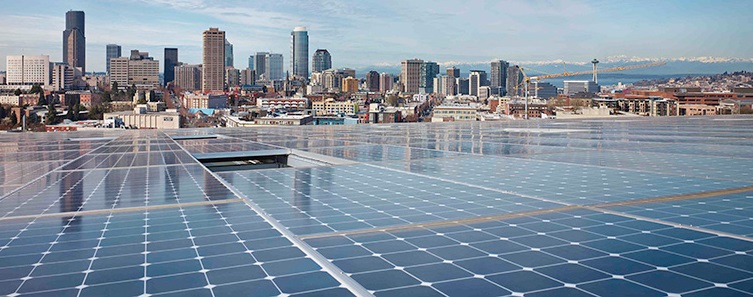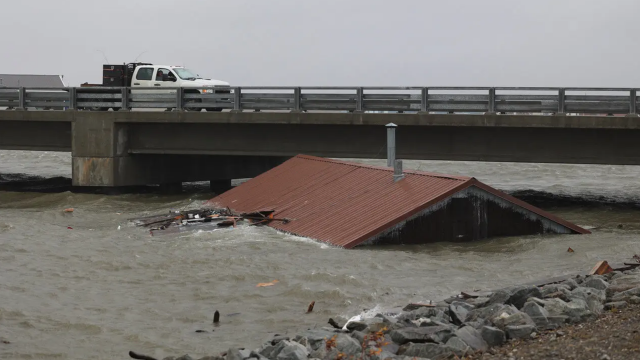
Mitchell Thomashow, Catalyst Fellow
If you visit just about any university campus in North America, you’ll notice an important dynamic: the idea of sustainability has taken root everywhere, from rural community colleges to large urban state universities, bringing diverse stakeholders together. From Oregon's Portland State University to the University of Montana and beyond, there are countless bold and innovative sustainability projects stimulating local investment.
Sustainability is now a generic word that takes on multiple meanings. It’s easily confused with the more traditional environmental movement, but what’s so encouraging and inspiring is that true sustainability brings many players to the table. In my previous roles as director of Second Nature's Presidential Fellows program and as an independent consultant, I’ve worked with chief financial officers who understand how they can save the campus a great deal of money by implementing energy conservation, using renewable energy, embracing sustainable procurement or working with local food providers. I’ve worked with presidents who understand that sustainability operations can promote local campus and community investment, boost philanthropy and serve as a business incubator. And facilities teams are almost always on board, interested in new ways of thinking about campus landscaping, maintenance and construction.
Across professional levels, political backgrounds and personal experiences, sustainability proponents unify around a common desire to build community on their campus, to respect it and recognize it as a special place that lends meaning to our lives.
How can this campus approach advance our work at Philanthropy Northwest?
Rooted in Place, Informed by Community
Different places and communities will interpret sustainability according to their specific needs and the challenges of their unique cultural and ecological landscapes. In the Northwest, we can promote a deeper understanding of sustainability as an inclusive strategy to building community, celebrating place and enhancing society. These priorities are ideally suited as a way to consider our region's various human and environmental challenges. Whether it's planning for equitable and ecologically sound water use, balancing extractive resource industries with wilderness conservation or dealing with issues of human health and opportunity, a sustainability lens broadens the scope and vision of our policies and choices.
We aspire to build the strength of community through the common living and working environment. Most people want assurances that they will have meaningful work and community, reasonable comfort and security, a clean and safe environment, good health and opportunities for personal growth — and that these will be enduring qualities. By calling attention to how personal actions and community practices affect the natural world, the concept of sustainability simultaneously projects the good life, poses challenging questions and promotes investment in local community.

In Community and the Politics of Place, Daniel Kemmis, a former Philanthropy Northwest board member, describes how places may play a role in the revival of citizenship. An authentic political process will emerge when people understand how they learn to inhabit a landscape together, how to explore the values about a place they have in common and how they are jointly engaged in the cultural habits and material practices of everyday life.
We aspire to deepen conversations about the meaning of sustainable solutions so as to include business and economics, ecology and landscape, civic participation and community engagement, especially as it pertains to the future of the Pacific Northwest.
Conversations about sustainability are meaningless unless they include diverse, equitable and inclusive perspectives. So many communities feel left behind as they struggle to control the circumstances of their local places — whether it’s the dislocation of people who can no longer afford the rents in a booming city, or the working people left behind because a local industry can no longer compete in a global economy, or any of the difficulties that accrue when economic and environmental change impact a community. Sustainability may have a green veneer, but it must go much deeper, landing in the very center of a community’s heart and soul.
Catalyzing the Conversation
As a Catalyst Fellow, my role is to help Philanthropy Northwest build social capital, intellectual leadership and organizational effectiveness in promoting sustainability, community engagement, place-based solutions, culture and education.
There are scores of extraordinary people and institutions working in these focus areas. The philanthropic challenge is how to catalyze philanthropic organizations to broaden the effectiveness of sustainability while providing an integrating concept for programs, grants and investments. The Catalyst Fellows can serve as public intellectuals, promoting creative ideas to facilitate innovation and change, community collaboration and participatory learning. This includes working with diverse intellectual communities (artists, social activists, designers, architects, curators, sustainability advocates), connecting regional philanthropic interests around common themes, developing mentoring opportunities for young leaders and engaging the business community and nonprofit sector.
We Catalyst Fellows each have specific areas of expertise and interest, but we are all inspired by the relationship between sustainability, community and place. In the weeks to come, we look forward to exploring these issues in greater depth, learning from the experience of people on the ground, building affiliations and partnerships that strengthen the vision and application of our Pacific Northwest philanthropic networks. Our first step in that learning process will be to listen well. I am in the process of setting up meetings with network members to understand the substantive issues of most concern, what the idea of sustainability means to them and how the fellows can be most effective. An important aspiration is to develop public forums — including conversations at Philanthropy Northwest's annual conference in September — or specific meetings that reflect the diverse interests of our fascinating network.
We are very interested in your thoughts and suggestions. Please reach out to me at mthomashow@philanthropynw.org.
Mitchell Thomashow is one of Philanthropy Northwest's Catalyst Fellows, focused on sustainability.


